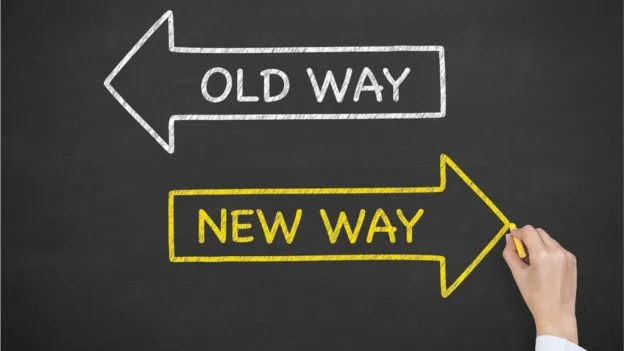by Leigh Ann Gowland
Rapid change, disruption, adaptability, agility and flexibility are recurring words in daily business conversations from strategy to operations. Whether the change is triggered within the organisation or from the external environment how you respond to the change determines success. The best mechanism to manage constant change is to incorporate change habits into your daily activities, hone your change abilities and be prepared for unexpected changes. Change is no longer an event or process but an ability to continuously adapt.
Awareness of change
Sudden and significant changes often catch us by surprise and leave us feeling vulnerable and panicked. What happened? Where did that come from? How did I not see that coming? Being aware of changes in your industry or market may come naturally as you are constantly monitoring trends, reviewing online content and engaging with your customers and suppliers for feedback. These habits in monitoring your industry are evidence of the value of early awareness. Unfortunately, practically you cannot remain vigilant of all factors impacting your business.
To heighten your change awareness, consider incorporating broader information sources in your daily practices. It may be impossible to monitor and prepare for all possible change but reducing the number of surprises could make unplanned changes easier to manage. Habits are unique to your personality and circumstances, but consider these ideas for inspiration:
- Once a week scan the headlines of a financial or business publication or website outside your typical sources. Changes in other industries may trigger change in your industry or inspire you to consider new perspectives.
- Set time aside monthly to reflect on trends and changes in your business. If you notice a small change, make a note to review the following month for future opportunities or significant impacts on performance.
- When scheduling routine meetings with your trusted advisors and suppliers request an extra 20 minutes to discuss trends or interesting developments they have noticed. They may not know the relevance to your business until you discuss it together.
- Review your twitter follows to incorporate topics impacting your business but not central to your industry. Twitter may be overwhelming but scrolling through the feeds may trigger considerations for your business.
- As a team or a supportive group of solopreneurs inspire each other with interesting facts once a week. This may simply be a good reason to connect weekly but you never know what interesting and relevant facts you will discover. Forums such as Lionesses of Africa provide a wealth of information and contacts to engage.
Continuously experimenting with change
Standardised processes are defined and instilled in businesses to manage performance and governance. These become entrenched in the business and no one questions the rationale for a process or policy. In dynamic environments in continuously changing markets best practice is consistently challenged and improved. An ethos of continuous improvement creates opportunity for enhancement and progress. Identifying internal and external change and trends is valuable insight and inspiration for exploring opportunities for improvement. Experimenting with new approaches encourages a spirit of continuous improvement and flexibility to respond to future change opportunities.
Creating capacity for change
Routines are convenient when they provide common understanding of what must be done and a shorthand when working under pressure. The notion of continuous improvement challenges the comfort in structured routines. However, to create space to experiment with change you need to free capacity in your already full day. Google work hacks to find hints and tips to improve your productivity, efficiency and eliminate time guzzling habits. For a week record your activities and time spent per activity then reflect on your routines and incorporate work hacks to create additional capacity for change habits. Repeat this assessment quarterly to ensure you are not replacing time wasting activities with other bad habits.
Recognise growth and build
Nothing re-enforces good habits as well as recognition and reward. When you have instilled a positive change habit into your day take a moment to recognise your growth and celebrate your success. If you manage a team, positive re-enforcement will encourage innovation and continuous improvement. Time is a valuable commodity and everyone is limited to 24 hours in a day. Commitment to changing habits to continuously improve efficiency is a valuable investment in your business.
Leigh Ann Gowland is an independent change management consultant and the founder of Employee Driven Change, and assists companies with large change initiatives while making change work for individuals. With fifteen years of experience in change management, human resources, and workforce transformation, she understands individual and business change across industries, projects and corporate cultures. Her approach to consulting and coaching styles is informed by Systems Theory and her passion for empowering others to understand and drive change and apply these skills. www.employeedrivenchange.co.za
More articles by Leigh-Ann...











